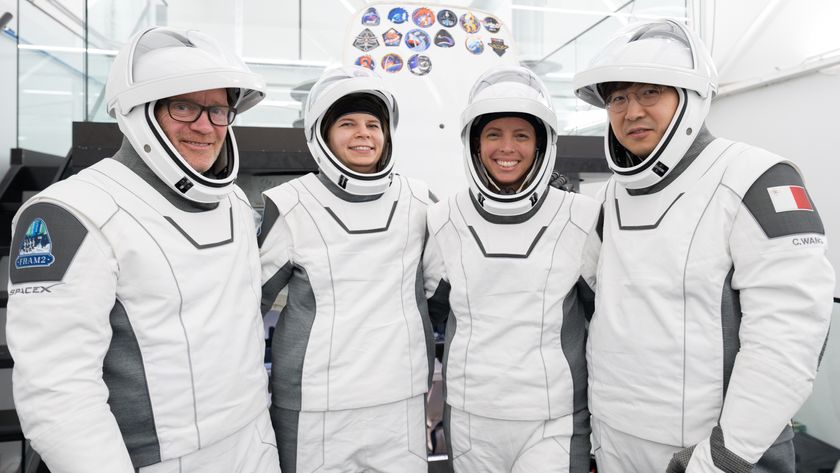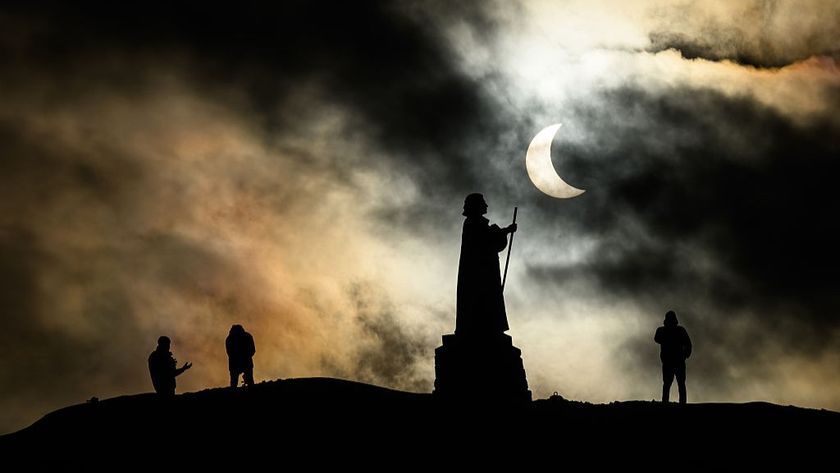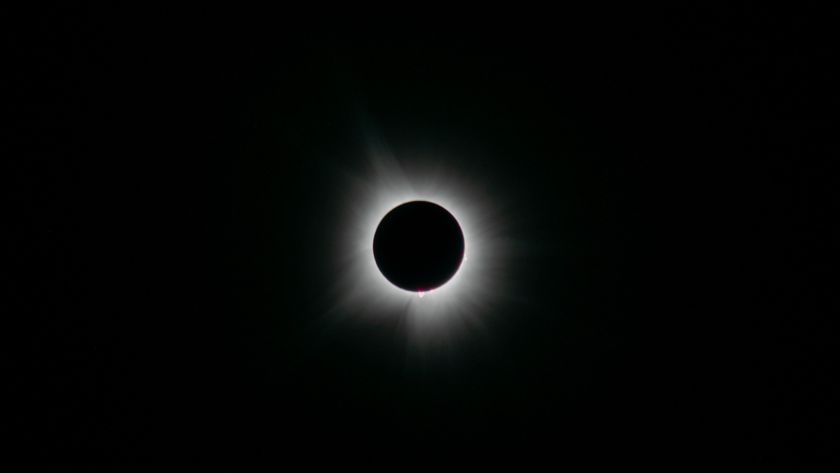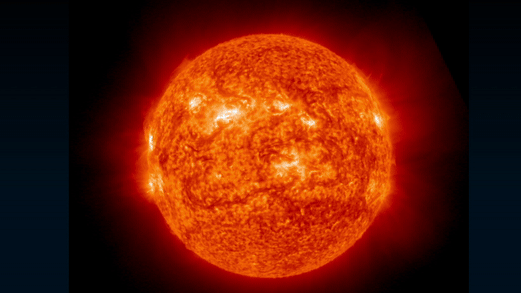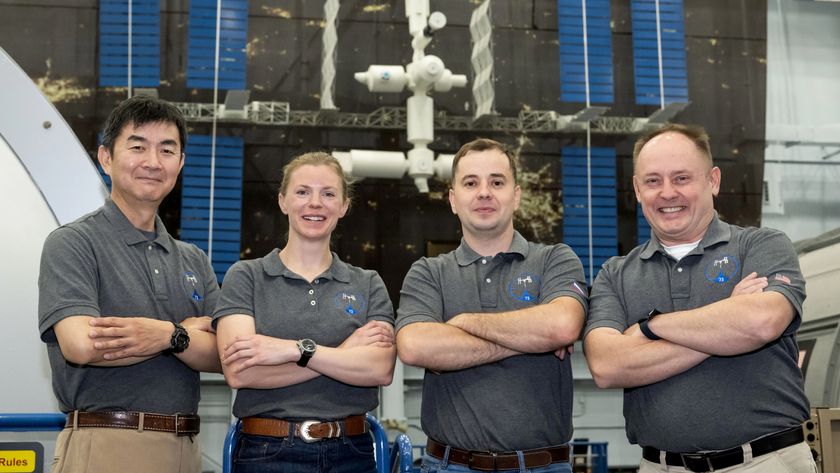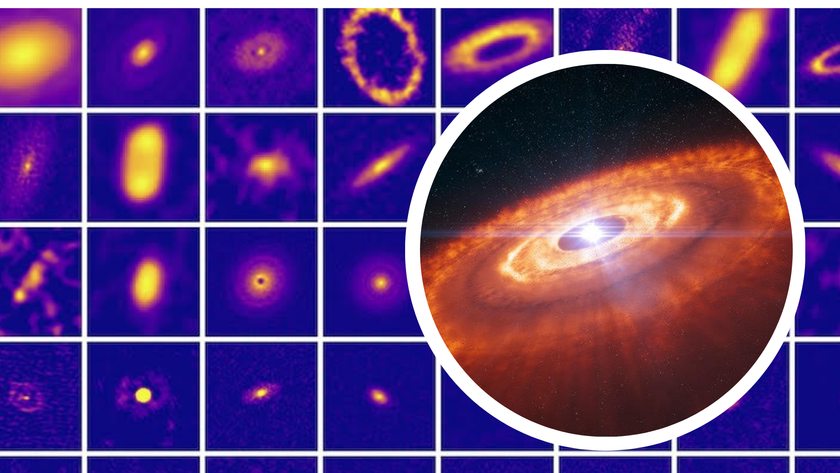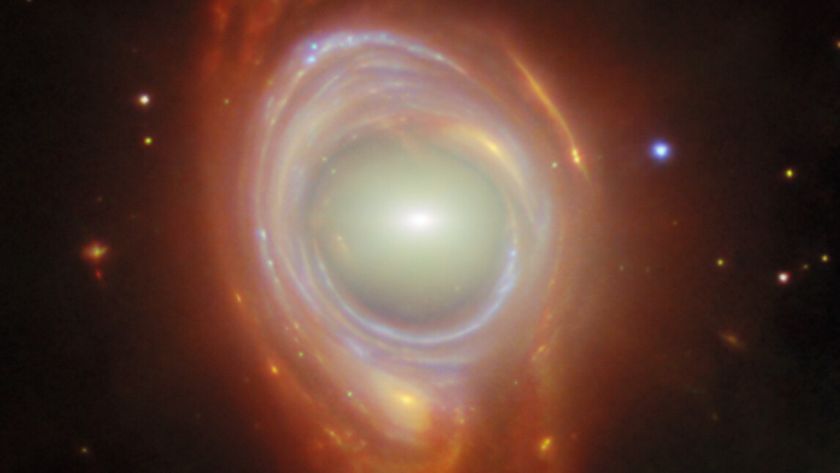Satellite Woken from 11-Month Nap
A satellite that's been asleep for 11 months has been woken so that it can observe a comet impact that NASA plans for July 3-4.
After more than five years on the job, the Submillimeter Wave Astronomy Satellite (SWAS) was put to sleep last year while it continued to orbit earth. Among SWAS's accomplishments was finding a swarm of comets around an aging red giant star.
"We knew there was life left in SWAS," said SWAS Principal Investigator Gary Melnick of the Harvard-Smithsonian Center for Astrophysics. "SWAS's ability to detect emission from water convinced us that we could contribute to the broader understanding of comets generated by this event. This once-in-a-lifetime event was just too tempting to pass up."
NASA's Deep Impact spacecraft will release a probe to collide with comet Tempel 1 early in the morning of July 4 (late at night on the U.S. West Coast). The impactor, about the size of a washing machine, is expected to carve a crater in the comet and kick up primordial gas and dust locked inside.
The Deep Impact mothership will observe the event, as will major telescopes around the world and in space.
Now SWAS will contribute to the plethora of data that scientists hope will unlock secrets of comet structure and composition.
Comets are made of water ice and rocky material, plus a long list of chemicals. But scientists don't know what all is in comets or how solid they are.
Get the Space.com Newsletter
Breaking space news, the latest updates on rocket launches, skywatching events and more!
"Because a comet is composed mostly of ice and rock, water is the most abundant molecule released by a comet. Everything else vaporizing from the comet is measured relative to the amount of water," said Melnick. "Water is the gold standard for comets, so knowing how much water is being released per second is a very useful piece of information."
Already SWAS is taking the measure of comet Tempel 1. The comet is ejecting about 730 pounds of water per second, which is modest by cometary standards, officials said today. The satellite will watch Tempel 1 through August.
- Deep Impact: Viewer's Guide and News Updates
Join our Space Forums to keep talking space on the latest missions, night sky and more! And if you have a news tip, correction or comment, let us know at: community@space.com.

Space.com is the premier source of space exploration, innovation and astronomy news, chronicling (and celebrating) humanity's ongoing expansion across the final frontier. Originally founded in 1999, Space.com is, and always has been, the passion of writers and editors who are space fans and also trained journalists. Our current news team consists of Editor-in-Chief Tariq Malik; Editor Hanneke Weitering, Senior Space Writer Mike Wall; Senior Writer Meghan Bartels; Senior Writer Chelsea Gohd, Senior Writer Tereza Pultarova and Staff Writer Alexander Cox, focusing on e-commerce. Senior Producer Steve Spaleta oversees our space videos, with Diana Whitcroft as our Social Media Editor.

